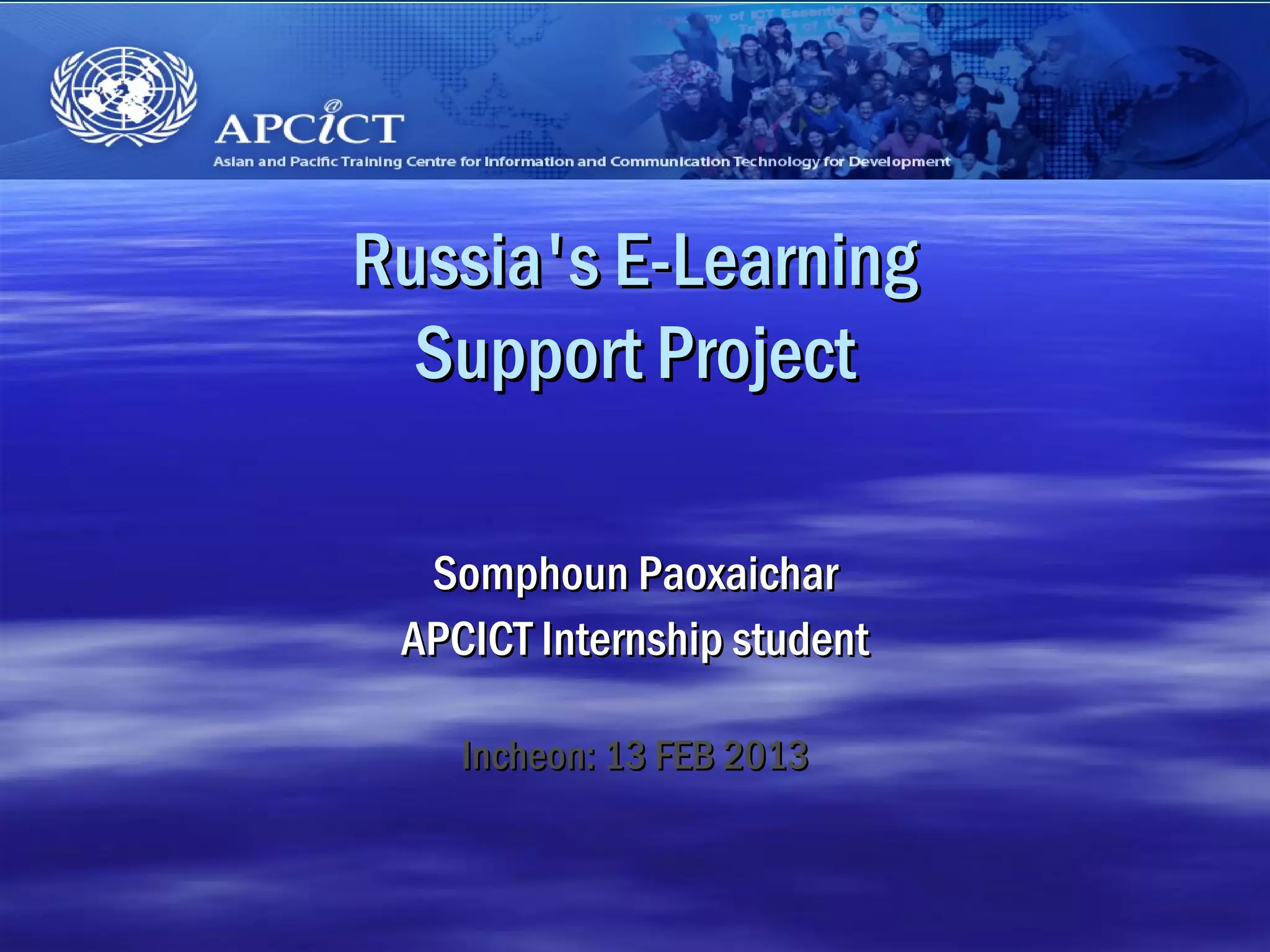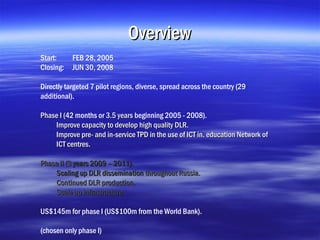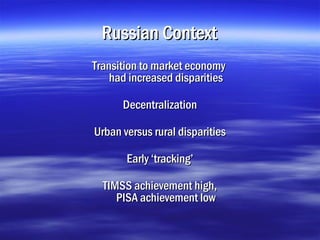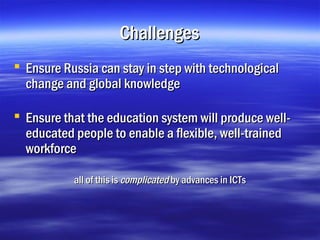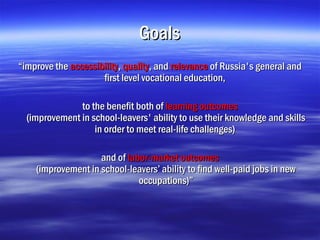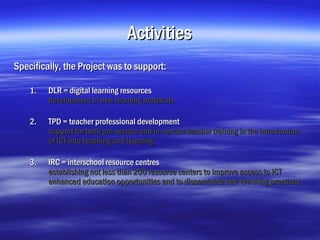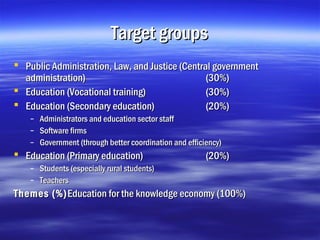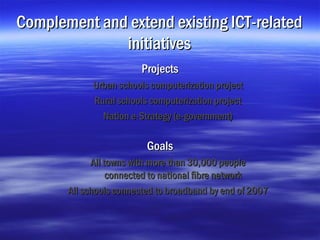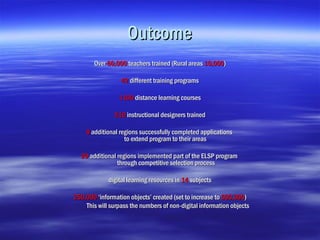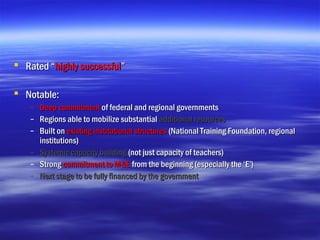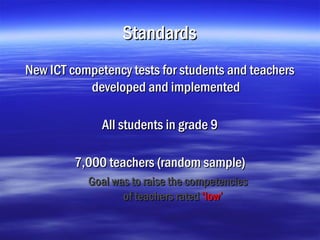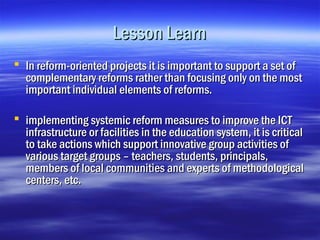The Russia E-Learning Support Project had two phases from 2005-2011 with the goal of improving education quality and workforce outcomes. Phase I from 2005-2008 aimed to develop digital learning resources, improve teacher training in ICT, and establish 200 resource centers. It targeted 7 pilot regions and was funded at $145 million. Phase II from 2009-2011 focused on scaling up the initiatives nationally. Over 60,000 teachers were trained, 1100 distance courses created, and digital learning resources developed in 14 subjects. The project was deemed highly successful in building technical and institutional capacity across Russia's education system.
